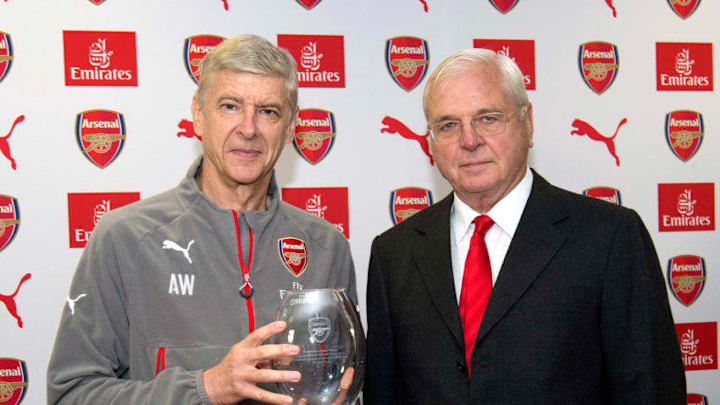Arsenal have released their latest financial results. Here we break down what they mean and what the future could hold as a result.
Arsenal released their financial reports for the six months prior to November 2016 on Friday afternoon. The figures are always interesting to cast an eye over, given the scrutiny that the fanbase questions Arsene Wenger, his overall management of the club and, in particular, his apparent unwillingness to invest in the transfer market.
Related Story: Top 15 Most Ridiculous Transfer Sagas
The announcement was made by Chairman, Sir Chips Keswick, who summarised the figures stating that the club is in a positive financial position:
More from Pain in the Arsenal
- 3 observations from Arsenal’s victory at Goodison Park
- 3 standout players from 1-0 victory over Everton
- 3 positives & negatives from Goodison Park victory
- Arsenal vs PSV preview: Prediction, team news & lineups
- 3 talking points from Arsenal’s victory at Goodison Park
"“The financial results for the first half of the year are robust. As expected, increased Premier League broadcasting revenues have had a direct impact on player costs both in terms of transfer prices and player wage demands. We have invested in our playing squad at record levels. It has also been exciting to see more young players emerging from our academy. We are very focused on producing a positive and exciting closing run and with the support of our fans, I believe together we can achieve a successful and memorable end to the season.”"
Here are some of the numbers that were released. The club’s turnover increased to £191.1 million. which is, as Keswick states, primarily due to the significant increase in TV revenue. There was a record £110.5 million spent on players, the most substantial of which were the £34.85 million spent on Shkodran Mustafi and £38.25 million on Granit Xhaka. The club made a profit of £12.6 million and saw their cash reserves drop from £135.9 million to £100.5 million, which is a result of the club’s record spending.
Clearly, there is a greater intent to spend money than many would have you believe. While Wenger has been criticised for being hesitant to invest in the past, as the move to the Emirates moves yet another year into the past, the financial restrictions loosen and Wenger becomes a little more aggressive.
Looking to the future, there is no reason to expect this uptick in spending to stop. Wenger is evidently not afraid to spend, he is simply careful in how he does so. If Wenger decides to continue as Arsenal manager beyond the summer, then there will be a significant expectation that he invests in the squad as he looks to end a 13-year title drought.
Next: Arsenal: Ideal 2017/18 Starting XI
The club, as ever, is still one of the best-run organisations in sports. Although many may have griped with their apparent lack of ambition, the record spending last summer was a sign that their tentative ways are coming to an end. The future is very bright indeed.
